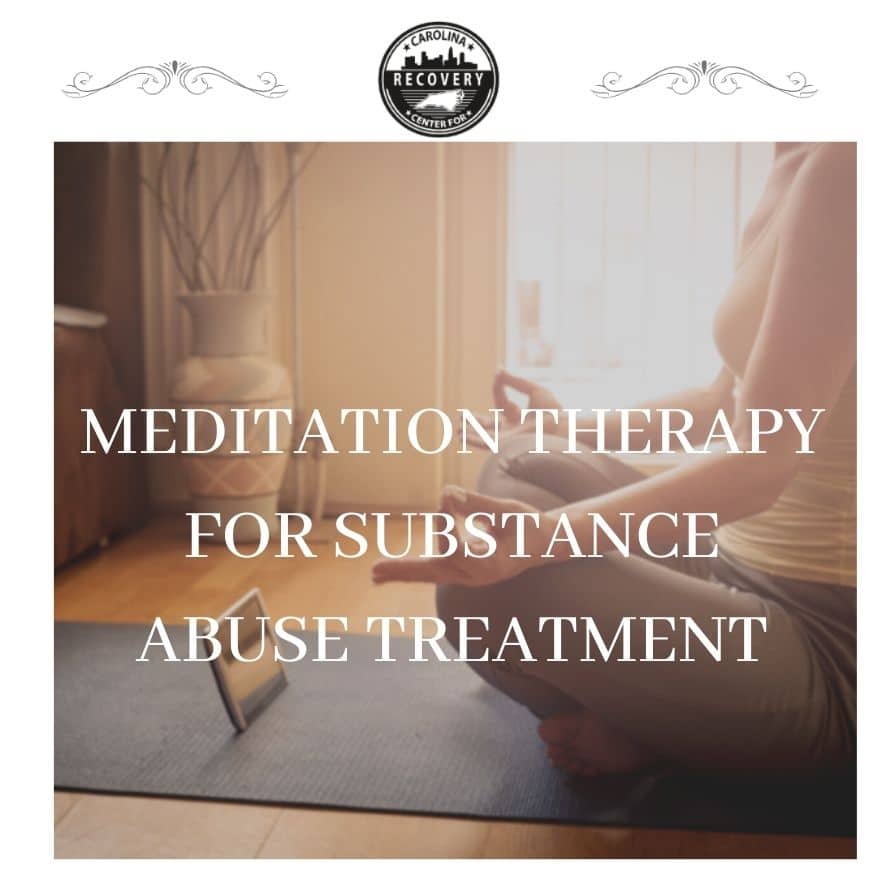Meditation Therapy for Substance Abuse

Medically Verified: 2/1/24
Medical Reviewer
Chief Editor

All of the information on this page has been reviewed and verified by a certified addiction professional.
Meditation is often used as a technique in treating the symptoms of many mental health conditions, including stress and anxiety. A simple, yet effective technique, meditation is now frequently used in the substance abuse and mental health treatment field as a form of therapy. The overall goal of meditation therapy is to connect the mind with the body for improved mental well-being and enhanced quality of life. By taking deep and focused breaths and utilizing a mantra or focus word, the effects of substance abuse are treated naturally and effectively.
The Benefits of Different Types of Meditation
Oftentimes, meditation includes the utilization of a cross-legged seated posture, referred to as the lotus pose. Additionally, slowed and deep breathing is a staple practice when meditating. Similar to yoga, meditation is effective in reducing feelings of depression, anxiety, and emotional triggers. Also, meditation therapy is known to help change brainwaves to promote better mental health and stability. There are several methods of meditation, with each one providing slightly different benefits.
Mindfulness Meditation
This is the most popular form of meditation therapy. Mindfulness meditation focuses on increasing focus, concentration, and awareness.
Zen Meditation
This form of meditation is useful for encouraging non-reactivity and inducing feelings of calmness. Zen meditation reinforces attention to the present moment and encourages individuals to clear their mind from worries about the past or future.
Guided Meditation
This form of meditation is highly regarded as the easiest and best-suited practice for beginners. Guided meditation works by playing a video or audio recording of someone guiding individuals into meditation through words and music. It encourages people to visualize peaceful images and scenery while the individual is guided through the meditation.
Transcendental Meditation
Transcendental meditation uses a silent mantra and teaches the benefits of effortlessness as a means to achieve peace and reduce anxiety.
What is Meditation Therapy for Substance Abuse?
Keeping in mind the many benefits of meditation, this form of therapy is perfect for treating substance abuse and combating symptoms of withdrawal, reducing cravings, and healing triggers.
The benefits of meditation therapy regarding substance abuse treatment include:
- Reducing symptoms of depression and anxiety (including social anxiety)
- Increased concentration
- Improved mood
- Reducing PTSD and ADHD symptoms that may co-occur with addiction
- Increased creativity
- Reduced brain activity
- Reinforcing emotional stability
- Increased focus and attention
- Increased performance in careers and academics
- Decreased insomnia
- Reducing Post Acute Withdrawal Symptoms (PAWS)
- Increased strength and flexibility
- Reduced risk of relapse
Additional benefits of meditation therapy may include the ability to alter brainwaves, which help to improve psychological function and reduce levels of cortisol. To continue, mindfulness practice enhances the performance of the frontal cortex, which is the area of the brain that regulates planning and thinking.
This is extremely beneficial in recovery from substance abuse, as continued drug or alcohol abuse may limit one’s ability to think and plan sufficiently. Meditation also impacts the amygdala in a positive manner, reduces fear, and increases the activation of the anterior cingulate cortex, providing motivation and motor control.
Using Meditation Therapy for Substance Abuse-Related Issues
Withdrawal from drugs or alcohol may cause symptoms of anxiety, insomnia, and depression. Fortunately, meditation therapy helps relieve these symptoms by grounding the individual and calming the nervous system. Calmed nervous systems enhance one’s quality of sleep and enable better moods during times of wakefulness.
Additionally, individuals who suffer from co-occurring disorders, such as obsessive-compulsive disorder (OCD), can learn to observe thoughts without emotional attachment. In other words, individuals begin to separate their thoughts from their emotions, leading to less impulsive behavior. Meditation therapy also helps individuals to actively regain control over their impulses. For example, transcendental meditation is often used to the abuse of drugs, alcohol, and nicotine, as well as decreasing the risk of relapse.
The Connection Between Meditation Therapy, Substance Abuse, and Endorphins
Another benefit of meditation therapy for substance abuse treatment is the release of dopamine individuals receive. Dopamine is often referred to as the “feel good” chemical and is ultimately what those struggling with addiction seek out.
A study by Molecular Psychiatry explained that the low levels of dopamine that occur when someone abusing drugs experiences while “crashing,” contrasting it with a John F. Kennedy study. The John F. Kennedy study revealed a 65% boost in the functionality of the minds of participants during meditation therapy. Any co-occurring disorder or underlying motivations for addiction, such as filling a void, avoiding dealing with uncomfortable feelings, or feeling anxious improves with meditation.
Meditation Therapy Provides Increased Focus and Awareness
Overall, meditation therapy allows individuals to be at peace with the present moment. Individuals who have a hard time focusing due to substance abuse triggers or drug cravings may benefit from this practice, as they learn present moment awareness. Additionally, meditation often aids Cognitive Behavioral Therapy (CBT) by teaching individuals to focus on their behavior in a mindful manner. Lastly, meditation teaches people to accept the now, put the past in perspective, and create beneficial intentions regarding substance abuse recovery.
Meditation Therapy in Substance Abuse Treatment
Meditation is becoming a popular solution as a holistic treatment for substance abuse. Individuals seeking recovery from substance abuse and co-occurring disorders should begin by contacting a treatment provider, such as Carolina Center for Recovery, who will get them started in a facility offering meditation therapy.
At Carolina Center for Recovery, our patients will discover the different types of treatments that will help him, her, or them, thrive in wellness. Make the first step by contacting us today and learn how meditation treatment will set you free from addiction.

